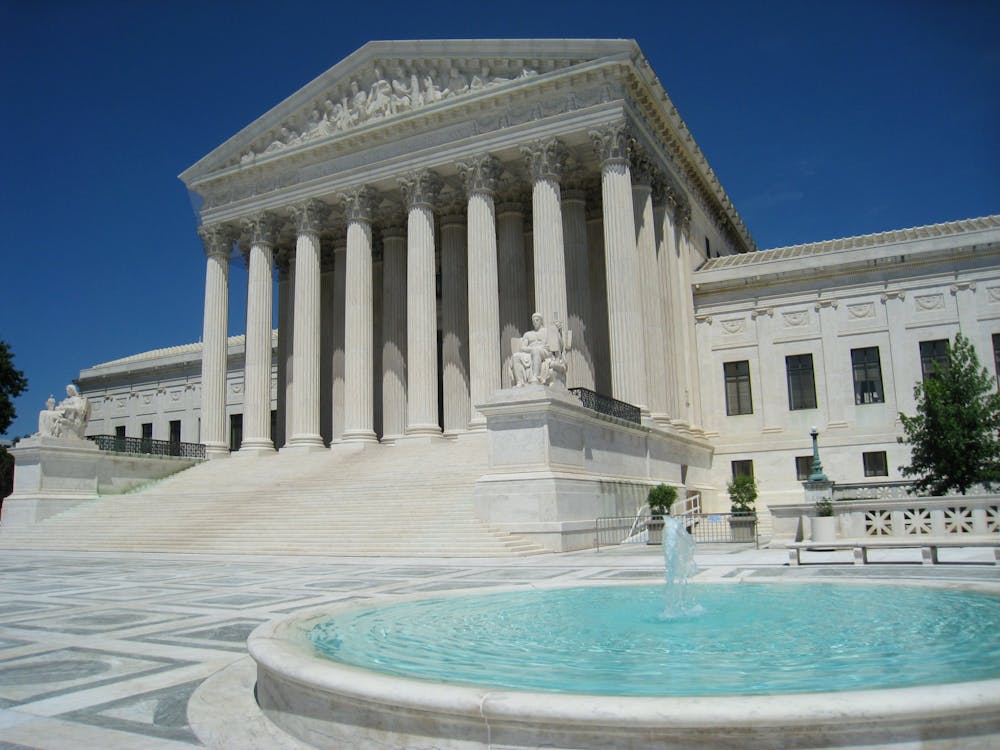By Matthew Kaufman
Managing Editor
The Supreme Court ruled in a 6-3 vote on June 29 that affirmative action in college admissions is unconstitutional, preventing admissions officers from directly using the race of an applicant as a factor in their decision.
The case was brought by Students for Fair Admissions, a legal activist group that sued Harvard and the University of North Carolina for their admissions practices that considered the race of an applicant.
The decision was one of several controversial opinions issued by the court this term, including the striking down of President Biden’s student loan forgiveness plan and the allowance of creative businesses to deny service to LGBTQ+ Americans.
Affirmative action, the Court said, violates the Equal Protection Clause of the Fourteenth Amendment, which says that no state shall “deny to any person…the equal protection of the laws,” a passage frequently cited by the Court in cases barring racial discrimination.
“Eliminating racial discrimination means eliminating all of it,” Chief Justice John Roberts wrote in the Court’s opinion.
The Court also said, however, that “nothing in this opinion should be construed as prohibiting universities from considering an applicant’s discussion of how race affected his or her life, be it through discrimination, inspiration or otherwise.”
The decision was assailed by the Court’s three liberal justices in their dissenting opinion.
“In so holding,” Justice Sonia Sotomayor wrote in her dissent, “the Court cements a superficial rule of colorblindness as a constitutional principle in an endemically segregated society where race has always mattered and continues to matter.”
Proponents of affirmative action, including President Biden, argue that the practice is crucial to increasing the racial diversity of colleges in a country with a history of systemic racism.
“I also believe that while talent, creativity and hard work are everywhere across this country…equal opportunity [is not],” Biden said in an address following the decision. “It is not everywhere across this country.”
In an email to the campus community following the ruling, Vice President for Inclusive Excellence James A. Felton III said that the College was “disappointed by the Supreme Court’s decisions…on affirmative action in admissions, the student loan forgiveness program and LGBTQ rights.”
Ashley Douglas, senior assistant director of inclusive admissions at the College, went into further detail about how the decision will affect admissions in an email to The Signal.
Douglas said that the College’s admissions team had previously considered an applicant’s race, among other factors, as a way of ensuring a “diverse and inclusive climate that is beneficial for the enrichment of the campus community.”
“The holistic approach considers the ‘whole student,’” Douglas explained, “and those components may include student interests, artistic talent, athleticism, race and cultural background, community engagement and beyond.”
Douglas pointed to a quote from Felton of his prediction for how the decision would impact diversity at institutions such as the College.
“Predominantly White Institutions (PWIs) will see declines in the number of Black and Latino students,” Felton explained. “Thus, it will be harder or more difficult to recruit and retain historically marginalized/underrepresented students.”
Additionally, he added, “this will impact the undergraduate experience for all students, not just students of color, as majority students will have fewer opportunities to engage and learn from students who are different from themselves.”
As of fall 2021, the racial breakdown of the College was about 60% white, 17% Hispanic, 11% Asian, 5% Black/African American and 2% mixed race, according to the College’s most recent report on student demographics. Former President of the College Kathryn Foster told The Signal in March that the Class of 2026 was the school’s most diverse.
Douglas said that the College “remains committed to achieving inclusive excellence” and is “exploring how best to do that in light of the Supreme Court’s ruling” but did not offer further details.
Following the Court’s ruling, many pointed to the practice of legacy admissions as a system that breeds inequality, because it often benefits wealthy, white applicants whose parents previously attended the school. An activist group has sued Harvard University for employing this practice, arguing that it discriminates against Black and Hispanic applicants, as reported by the New York Times. Many elite schools, however, argue that legacy acknowledgement brings in donations that can fund financial aid for other students.
“While we celebrate legacy students,” Douglas noted, “[the College] does not use legacy as a factor in determining whether or not to offer admission. Students are admitted based on our holistic review and on their own merit.”
Though the road ahead may be uncertain for future applicants, Douglas said that her advice to prospective students has not changed.
“We encourage prospective applicants to take challenging courses and do well in them, share their story by writing a compelling personal statement and essay, secure strong letters of recommendation, be active members of their community and demonstrate interest in attending.”







